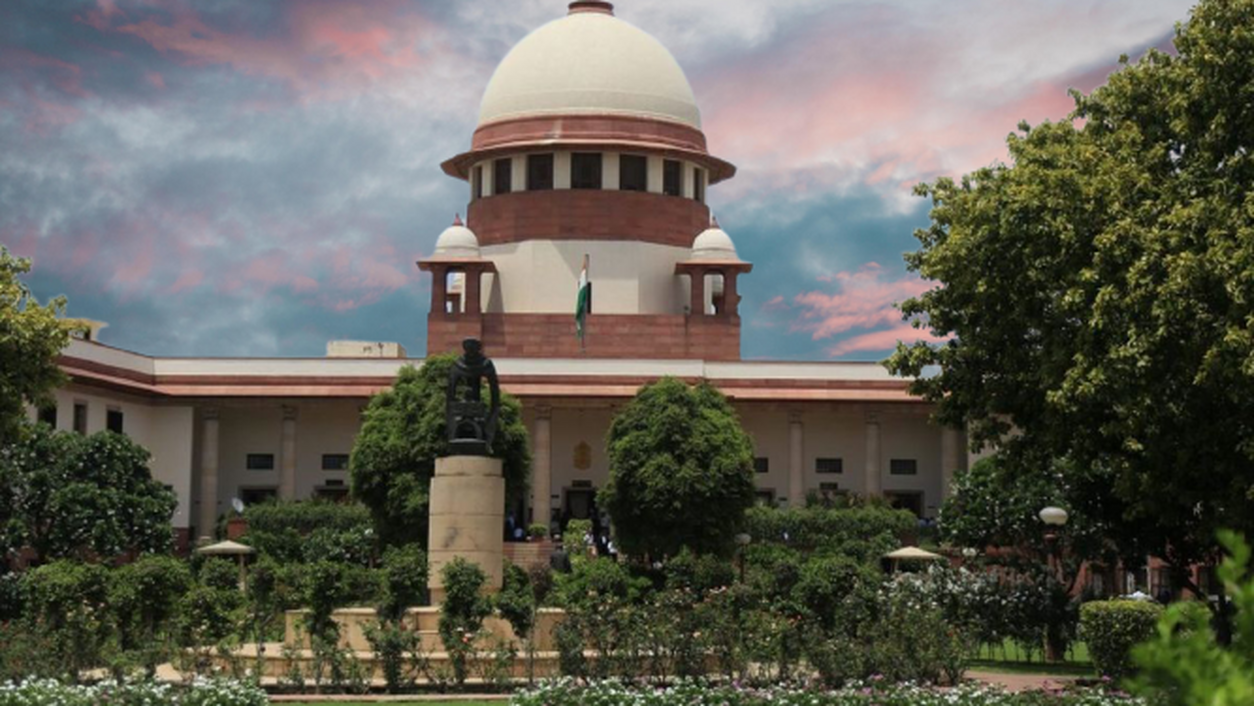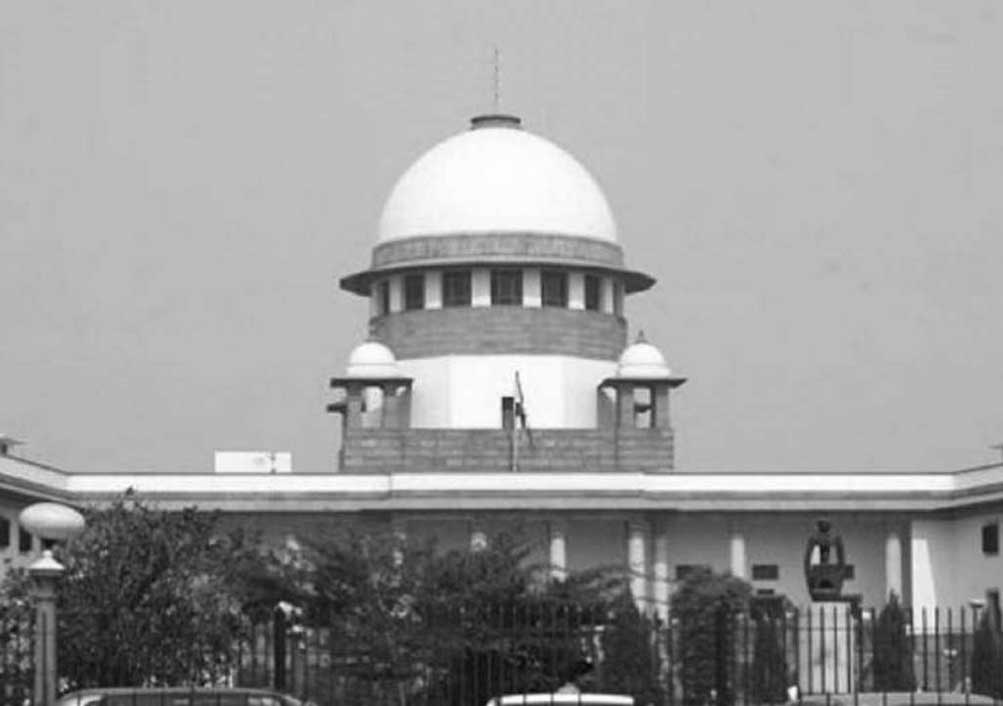‘Revival of a sick industry should be given utmost priority’: Top Court excludes period during which Fertilizer Corporation of India was a sick company for the purposes of calculation of interest
Justices J.B. Pardiwala & Sandeep Mehta [26-04-2024]

Read Order: FERTILIZER CORPORATION OF INDIA LIMITED & ORS v. M/S. COROMANDAL SACKS PRIVATE LIMITED [SC- CIVIL APPEAL NOS. 5366-5367 OF 2024]
LE Correspondent
New Delhi, April 30, 2024: While upholding the order of the Telangana High Court awarding 24 per cent interest to the original plaintiff - M/s Coromandal Sacks Private Limited - on its dues as per the provisions of the Interest on Delayed Payments to Small Scale and Ancillary Industrial Undertakings Act, 1993, the Supreme Court has excluded the period during which the defendant company - Fertilizer Corporation of India Ltd. - was a sick company as per the Sick Industrial Companies (Special Provisions) Act, 1985 for the purposes of calculation of interest.
M/s Coromandal Sacks Private Limited-original plaintiff has been established with the assistance of the Andhra Pradesh Industrial Development Corporation Limited (APIDC) and is engaged in the manufacturing of High Density Poly Ethylene (HDPE) bags. The defendant company-Fertilizer Corporation of India Ltd. (FCIL) is a Public Sector Undertaking (PSU) established for the manufacturing of fertilisers.
The original defendants required HDPE bags for the purpose of packaging and supply of fertiliser to their customers. They had been placing orders for the same with the original plaintiff since 1986-87 onwards. The terms and conditions including the technical specifications of the bags and terms of payment were specified in the notices inviting tender (NIT) issued from time to time and the purchase orders issued in pursuance thereof. As per the terms of the NIT, the original defendants were required to make the entire payment within 20 days of the receipt of the bags and approval of the same. The terms of the purchase orders also entitled the original defendants to deduct up to a maximum of 5% of the contract price towards liquidated damages upon delay in supply of bags by the original plaintiff.
The case of the original plaintiff before the trial court was that it supplied 42,000 bags over and above the quantity mentioned in the purchase orders to meet with the urgent requirements of the original defendants. When a formal purchase order was subsequently issued by the original defendants to account for the extra bags supplied by the original plaintiff, the price per bag mentioned in the said order fell short of the price agreed upon between the parties. The original plaintiff was also aggrieved by the deductions made by the original defendants towards the liquidated damages for the alleged delay in supply of the bags and the penalty imposed towards the supply of the alleged poor quality of the bags. The original plaintiff also claimed to have suffered losses due to the refusal of the original defendants to accept 25,000 bags after placing the order, which were printed as per the specifications prescribed by the original defendants and had to be sold as scrap due to non-acceptance by the original defendants.
With a view to recover the aforesaid losses, the original plaintiff instituted the civil suit for the recovery of Rs 8,27,100.74 along with Rs 10,31,803.14 towards interest up to the date of institution of the suit. The appeals before the Top Court were filed challenging the impugned common judgment of the Telangana High Court partly allowing the Appeal Suits preferred by the original defendants and the original plaintiff respectively against the judgment of the Senior Civil Judge decreeing the suit partly in favour of the original plaintiff. The original defendant were also aggrieved by the impugned judgment as regards the awarding of 24% interest in favour of the original plaintiff which had inflated the principal decretal amount to mammoth proportions.
Referring to Section 3 of the Interest on Delayed Payments to Small Scale and Ancillary Industrial Undertakings Act, 1993, the Bench opined that where any supplier supplies any goods, the buyer shall make payment on or before the date agreed upon between him and the supplier in writing or, where there is no agreement in this behalf, before the appointed day. In the instant case, as per the terms of the NIT, payment was to be made within 20 days from the receipt of the goods.
“While there is no doubt that the rate of interest applicable to the dues of the original plaintiff as determined by the High Court is correct, we think it is necessary to examine if the compound interest can be said to have continued to accrue even when FCIL was declared a sick company and was awaiting its revival before the BIFR”, the Bench said.
The Top Court also made it clear that in the absence of the express permission of the BIFR, Section 22(1) of the Sick Industrial Companies (Special Provisions) Act, 1985 suspends any legal proceedings in the nature of execution during the pendency of the scheme before the BIFR, as execution would necessarily result in negatively impacting the assets of a sick company, thereby affecting the preparation, sanction or implementation of scheme and as a net effect, would bring down the chances of revival of the sick company.
In this case, the suit was decreed in favour of the original plaintiff by the trial court. However, while the adjudication of the suit of the original plaintiff could not have been said to be barred under Section 22(1) of the 1985 Act as it was for the mere determination of liability of the parties inter-se, the execution of decree obtained as a result thereof was expressly suspended during the period as mentioned in the said provision, unless the requisite permission from the BIFR or the AAIFR could be obtained.
“Thus, while there is a stay on proceedings in the nature of distress and execution, etc. against the properties of the sick company, to safeguard its assets, awarding interest for that very same period, though not expressly barred under any provision of the Act, could not have been the intention of the legislature”, it said while also adding, “...revival of a sick industry should be given utmost priority and any interpretation which may result in a newly revived company becoming sick again should be avoided at all costs.”
Herein, the decree in favour of the original plaintiff was not a part of the scheme of rehabilitation approved by the BIFR. Had it been so, it was nothing but obvious that the scheme would have proposed to settle the dues of the original plaintiff at a scaled down value, since a similar approach was adopted in the scheme to settle the dues of all the other creditors. In that scenario, the original plaintiff would not have had any other option but to accept the scaled down value and settle its dues.
Noting that no material was placed to show whether any steps were taken by the original plaintiff to obtain the permission of the BIFR for the execution of the decree of the trial court, or for the inclusion of the said decree in the rehabilitation scheme, the Bench observed that original defendants too failed to bring anything on record to show if any steps were taken by them for the inclusion of the dues of the original plaintiff in the rehabilitation scheme.
“Thus, only for the reason that the dues of the original plaintiff were not a part of the scheme and thus could not be settled at a scaled-down value, it cannot be held that it will now be open for the original plaintiff to recover its dues along with compound interest for the entire period in a manner that will saddle the defendant company with enormous liability, thereby possibly rendering the entire process of its revival futile. This, in our view, could never have been the object of the 1985 Act and the provisions of the 1993 Act thus have to be harmonised so as to give effect to the true object of the 1985 Act”, the Bench said.
The 1993 Act was replaced by the Micro Small and Medium Enterprises Development Act, 2006 during the pendency of the proceedings. However, both the District Court and the High Court dismissed the challenge petition for not complying with the Section 19 of the MSMED Act, 2006, which mandates that 75% of the decretal/award amount has to be deposited by the appellant before the appeal can be entertained by the appellate court.
It was further observed that for the period during which the defendant company was sick and before the BIFR, it couldn’t be said that the withholding of the payment of the dues of the original plaintiff was wilful and intentional. The Bench also found it fit to exclude the period commencing from the date when FCIL was declared to be a sick company under the 1985 Act going up to the date when it was discharged by the BIFR and declared to be no longer a sick industrial company from the purview of the applicability of the interest provision under the 1993 Act.
It was held that the suit instituted by the original plaintiff before the trial court was not hit by the embargo envisaged under Section 22(1) of the 1985 Act. Thus, the decree awarded in favour of the original plaintiff by the trial court and modified by the High Court, couldn’t be said to be coram nonjudice.
The High Court committed no error in awarding 24% interest to the original plaintiff on its dues as per the provisions of the 1993 Act. However, the period during which the defendant company was a sick company as per the 1985 Act should be excluded for the purposes of calculation of interest. As a result, the impugned judgment of the High Court was upheld subject to the modification of the period for which interest may be granted. The interest has been ordered to be calculated at 24% p.a. with monthly compounding.
Disposing of the appeals in these terms, the Bench directed that the final amount that may be determined in accordance with the final decree shall be paid to the original plaintiff within 4 weeks.
Sign up for our weekly newsletter to stay up to date on our product, events featured blog, special offer and all of the exciting things that take place here at Legitquest.



Add a Comment